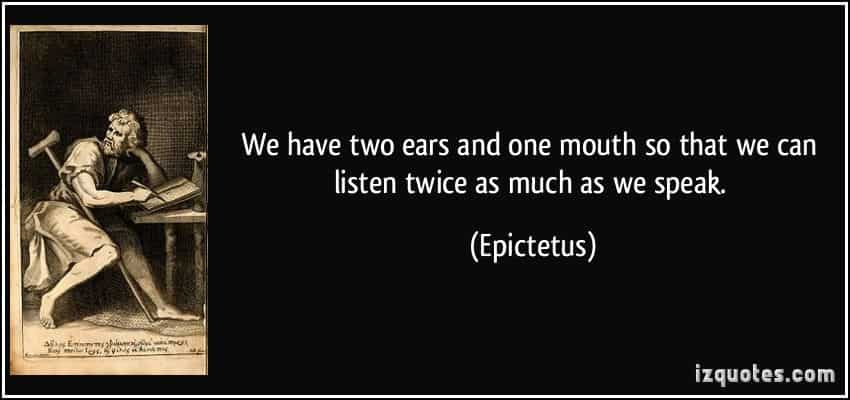Value of the Special Librarian and Inclusion/Diversity in Decision Making

Stephen Abram
I had the wonderful opportunity to spend a lot of time in the Lucidea booth at the SLA Conference this year. I was signing my book for Lucidea and having great conversations with information professional colleagues—including Eugene Giudice, who asked me to do one of his videos about the impact of special librarians today, which you can view through the link at the foot of this post.
We started talking about the role and value of special librarians in the knowledge-based economy. Of course, those of us who subscribe to the position that the real impact comes from the special librarian and not necessarily the special library as a facility, are well positioned to succeed in this new economic construct. It’s all about adaptability and flexibility and less about rules and fossilized constructs.
I like to introduce myself as a librarian but always extend that to say I manage the transformational space between ideas of the past and the solutions for the future. It starts a conversation!
My conversation with Eugene veered into the wonders of the uniqueness of the human brain and the wonderful contributions made by diverse teams of people, since we all approach problems as they arise in so many different ways. As we know certain professions—like medicine, engineering or law—require certain tried and true approaches and skills to the problem sets inherent in those workplaces. However, this era, with its rapid pace of change and disruption, presents issues that may not be solvable by the tried and true methods.
For example, as our organizations expand their markets beyond national borders into a global sphere, we stretch the boundaries of our knowledge of facts, cultures, and behaviours. We are challenged to learn, and, indeed, understand the differences in various conditions that may be material to building success. Individuals are limited by their own knowledge, culture and experience. That’s a good thing since it makes us unique. On the other hand, we can address this knowledge management issue by not only working in teams but ensuring that we engage through new hires, team construction and onboarding, or other engagement activities that reflect a diversity of other unique people.
Choosing to focus on diversity is just a start. At it’s worst it’s just tokenism or a numbers game to reflect a certain agenda. Diversity is the census. Inclusion is the strategy.
“Diversity is the range of human differences, including but not limited to race, ethnicity, gender, gender identity, sexual orientation, age, social class, physical ability or attributes, religious or ethical values system, national origin, and political beliefs.”
“Inclusion is involvement and empowerment, where the inherent worth and dignity of all people are recognized. An inclusive university promotes and sustains a sense of belonging; it values and practices respect for the talents, beliefs, backgrounds, and ways of living of its members.”
[https://www.ferris.edu/htmls/administration/president/diversityoffice/definitions.htm]
I’m sure we could all add other inclusion/diversity items to the list in the definitions above. In Canada, where I live, these are enshrined in our constitutional Chart of Rights, and form the basis of our Canadian value system. That said, the goal is really to remove barriers to success—which is a major component of managing knowledge ecologies in the workplace. To my mind, the removal of barriers is just a start. The real goal is to have inclusivity strategies based on our organizational and societal approaches to decision-making. In this context, I like inclusivity strategies that build on diverse teams but respect diversity in thinking styles and professional education too. Some problems just can’t be solved, except in an inter-disciplinary manner. Some problems need approaches that respect and integrate the different thinking styles that engage a multi-faceted approach.
There is a place for this but it only starts with diversity in your workforce. That’s a good place to start but, realistically, we can’t wait years to build a diverse workforce or diverse political framework, without recognizing that there are things that can be done now. A short list of tactics would include (but not be limited to):
- Ensuring that hiring processes are equitable (including where recruiting happens and reviewing standards for systemic exclusionary affects).
- Focusing on market research that ensures diverse opinions and experiences. For example, political polls focus on citizens and exclude those not eligible to vote . . . excluding a lot of new residents.
- Focusing on respect in the workplace and an openness to input and ideas. Every idea isn’t a good idea, but every idea is worthy of consideration.
- Testing the diversity of personalities and thinking styles on your teams and in your organization. Share. Go the step further and identify gaps and engage strategies to address them.
- Always calling out bullying based on any of the classes of diversity—no matter how subtle or subversive. (The various techniques for this are a posting on their own!) Build a visible culture of inclusion.
- Ask people to speak for themselves and not represent their entire gender, race, disability, culture, etc.
- Listen based on the “two ears, one mouth” philosophy.
- Always ask yourself: “Am I engaging enough differences in culture and thinking to address the issue at hand?”

I hope you enjoy the interview. Diversity and inclusion strategies are very relevant to our practice as information professionals.

Stephen Abram
Stephen Abram is a popular Lucidea Webinars presenter and consultant. He is the past president of SLA, and the Canadian and Ontario Library Associations. He is the CEO of Lighthouse Consulting and the executive director of the Federation of Ontario Public Libraries. Read more of Stephen’s blog posts for Lucidea, and check out the video referenced in this post.
Video Interview: Value of the Special Librarian and Inclusion/Diversity in Decision Making
This interview was conducted by Eugene Giudice with Stephen Abram at the SLA Conference in Cleveland, OH on 17 June 2019.
Similar Posts
Growing Your Leadership Skills: 7 Tips for Special Librarians
Great library leaders aren’t born—they’re made through learning self-reflection and practice. Here are seven strategies to help you grow and lead with impact.
Principles of Archival Preservation: Agents of Deterioration and Preservation Strategies
Explore the 5 key agents of deterioration and essential archival preservation strategies to safeguard your collections for future generations.
Lucidea’s Lens: Knowledge Management Thought Leaders Part 106 – Hubert Saint-Onge
As the creator of the Knowledge Assets Framework Hubert has shaped how businesses integrate strategy leadership and knowledge sharing to drive performance.
Exploring Self-Determinate Multiple Pathways: An Example of Digital Storytelling
Discover how self-determinate multiple pathways offer flexible interactive storytelling in museum exhibits. Learn from the Tenement Museum’s ‘Your Story Our Story.’






Leave a Comment
Comments are reviewed and must adhere to our comments policy.
0 Comments